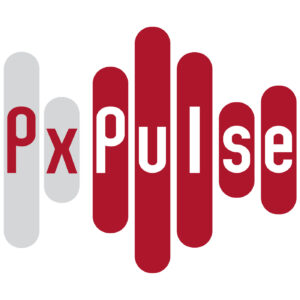This introductory PowerPoint slide set reviews basic concepts, and provides an overview of research status and recent developments.
HIV Vaccines: The basics
HIV Vaccine Research: Building on the Lessons from COVID
Building on the lessons of COVID, HIV vaccine advocates can mobilize for an HIV vaccine research and access agenda. This two-page document gives suggested messaging.
Breaking the Bottlenecks to COVID-19 Vaccine Access
This graphic identifies the factors contributing to the bottlenecks in the global supply of COVID-19 vaccines.
How can research ethics committees help to strengthen stakeholder engagement in health research in South Africa? An evaluation of REC documents
The authors recommend research ethics committees (RECs) amend their application forms to better ‘trigger’ researchers to thoughtfully plan sound stakeholder engagement. In the longer term, RECs’ documents should be better harmonised internally regarding their stance on stakeholder engagement.
Dive into the AMP Trials

Results from the AMP Trials, studying a broadly neutralizing antibody (bNAb) known as VRC01, were complex, with still unfolding implications for the field.
The AMP Trials, two Phase IIb studies, tested the safety and efficacy of an infusion of VRC01 received every eight weeks. HVTN 703/HPTN 081 enrolled 1,900 women in sub-Saharan Africa, and HVTN 704/HPTN 085 enrolled 2,700 men who have sex with men and transgender people in North and South America and in Europe.
The overall efficacy demonstrated in the trials was not protective. But when VRC01 was fighting strains of HIV that were highly sensitive to it, the antibody did provide partial protection. So what does that mean for the field, and what other questions have been raised by these pioneering trials?
In this episode of Px Pulse, AVACers Jeanne Baron and Daisy Ouya talk to leading bNAb researcher, IAVI’s Devin Sok; a veteran HIV research advocate Mark Hubbard who served on AMP’s protocol team; and a senior member of the HVTN’s community engagement team, a chief explainer of the AMP trails, Gail Broder. Together we explore why these findings point to the need for combination antibodies, the need for a better understanding of the types of HIV that are circulating in a community, the complicated implications of a key lab test, the TZM-bl assay and more.
Hosted and produced by Jeanne Baron.
Highlights
- The HVTN’s Gail Broder explains the results of the AMP Trials (11:09)
- Researcher Devin Sok from IAVI and advocate Mark Hubbard on AMPs’ implications (12:57)
Resources
- Understanding Results of the AMP Trials — AVAC
- Results from AMP Trials — New England Journal of Medicine
- Dedicated webpage on antibody-mediated prevention studies, AVAC
- Efficacy Results Announced: Global first AMP trials, HPTN
- The AMP Trials — A Glass Half Full, New England Journal of Medicine
- The Future of Antibody-based HIV Prevention, IAVI Report
- AMP-ticipation: Context and concepts for understanding the AMP Trials, AVAC
Breaking the Bottlenecks to COVID-19 Vaccine Access
This graphic identifies the factors contributing to the bottlenecks in the global supply of COVID-19 vaccines.
Research Work Group of the Federal AIDS Policy Partnership’s response to the NIH Request for Information (RFI)
This letter is the Research Work Group of the Federal AIDS Policy Partnership’s response to the NIH Request for Information (RFI) inviting comments and suggestions to advance and strengthen racial equity, diversity and inclusion in the biomedical research workforce and advance health disparities and health equity research.
Essential Principles & Practices for GPP Compliance: Engaging stakeholders in biomedical research during the era of COVID-19
This document is a new tool to help guide stakeholder engagement in COVID-19 research. Built from the Good Participatory Practice Guidelines for Biomedical HIV Prevention Trials (GPP), this document responds to needs expressed by both researchers and advocates as the world watched COVID-19 research progress with unprecedented speed and urgency.
Advocates’ Guide to Multipurpose Prevention Technologies
A resource to support advocacy for multipurpose prevention technologies (MPTs). The Guide calls out four areas ripe for advocate involvement. It also provides a snapshot on the status of MPT research and development and data on investments—critical information that can support evidence-based advocacy.
Updated Recommendations on HIV Prevention, Infant Diagnosis, Antiretroviral Initiation And Monitoring
A 2021 update to the WHO recommendations on HIV clinical and service delivery of prevention and treatment.